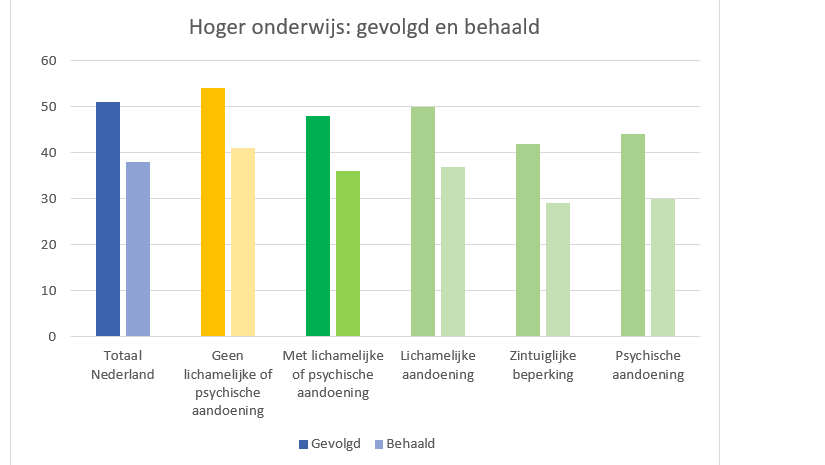People with disabilities less likely to complete higher education

More than half of all Dutch people under the age of 45 have pursued higher education. But it seems that higher education is less accessible to students with a mental or physical disorder. The latter group includes deaf and blind students.
Among those people with no disability issues, 54 percent attended a university of applied sciences (HBO) or a research-oriented university (WO), of which 41 percent ultimately graduated. Of people with a disability, 48 percent entered higher education, of which 36 percent got over the finishing line.
Chronic and long-term illnesses
So there is a difference of around five percentage points between people with and without a disability, according to a report (in Dutch) by Statistics Netherlands, which had the aim of monitoring the UN Convention on the Rights of Persons with Disabilities.
This relates to chronic or long-term disorders. Statistics Netherlands also makes a distinction between physical disorders, mental disorders and sensory impairments. The pattern can already be seen in the case of people with physical disorders: fewer of them enter higher education.
Moreover, students who are blind or deaf are much less likely to obtain a degree. Only 29 percent of them graduate. The figure is only fractionally higher for people with a mental disorder.
UN Convention
The Netherlands ratified the UN Convention on the Rights of Persons with Disabilities in 2016. The Netherlands Institute for Human Rights monitors the implementation of the convention. To that end, the Institute uses quantitative indicators, including these statistics about the accessibility of higher education.
Around two million people in the Netherlands have a disability. The Convention aims to ensure that society does not put any unnecessary obstacles in their way. For instance, countries should ensure that education is fully accessible.
It is the third time that Statistics Netherlands has issued figures on this topic. The previous occasions were in 2012 and 2016. The present figures relate to the year 2020.